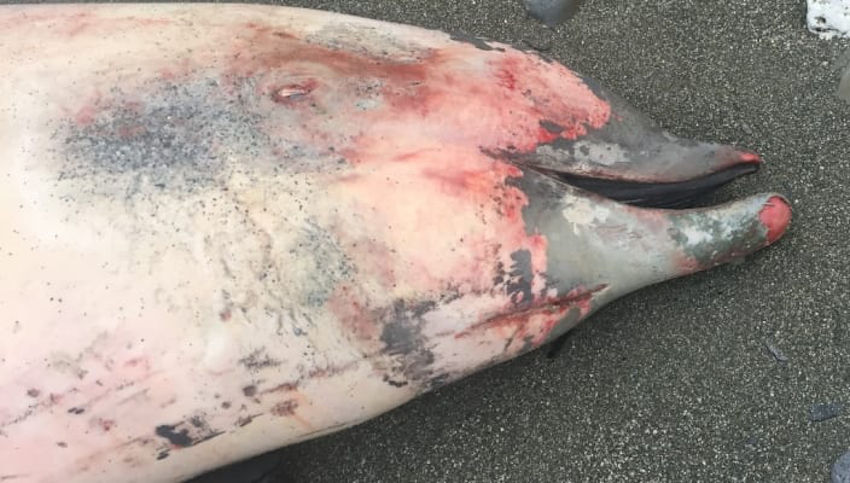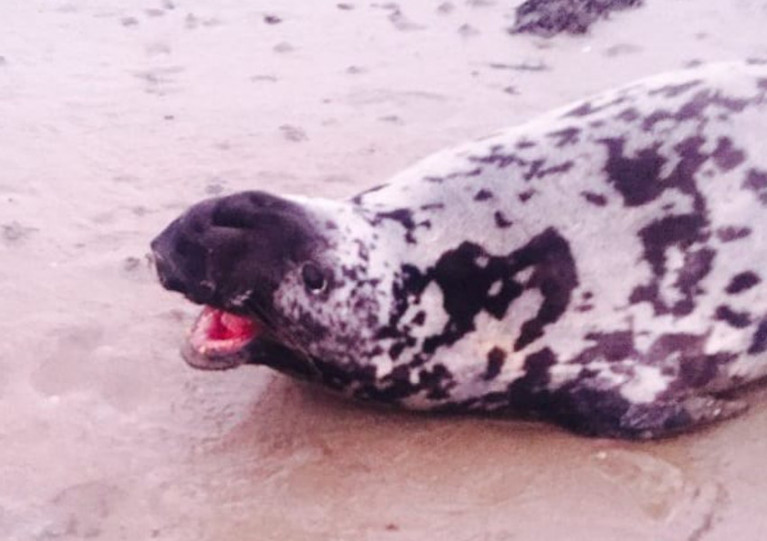Displaying items by tag: Hooded Seal
Unusual Seal Surprises In West Cork Among New Year Coastal Sightings
A seal rarely sighted in Irish waters was among the first sightings of the New Year by eagle-eyed supporters of the Irish Whale and Dolphin Group (IWDG).
The hooded seal was spotted by Helen Tilson of Schull Sea Safari on the mudflats at Toormore Bay in West Cork on New Year’s Day, and represents only the fourth or fifth Irish record for the Arctic marine wildlife species.
Video recorded by Tilson of the animal “removed any doubt” it was a a hooded seal “as it shows the nasal sac starting to balloon as she approached it, and it made a growling roar, the likes of which I’ve never heard from one of our grey seal bulls”, according to IWDG sightings officer Pádraig Whooley.
It’s believed this particular seal is a sub-adult male “in rather thin condition”, which is to be expected as it is so far south of its usual range.
 Cuvier’s beaked whale carcass in Clonakilty Bay on 21 December | Photo: Grace Keane O’Connor
Cuvier’s beaked whale carcass in Clonakilty Bay on 21 December | Photo: Grace Keane O’Connor
Meanwhile, reports of four stranded Cuvier’s beaked whale carcasses within 12 days and 70km of each other in December have prompted fears of a new mass stranding event for the deep water species.
The IWDG’s Mick O’Connell said all four were recorded along the Cork coast, beginning in Tragumna (16 December) and followed by Castlepoint in Roaringwater Bay (17 Dec), Lislevane in Clonakilty (21 Dec) and offshore at Galley Head (27 Dec).
“For the third time in five years we are looking at an unusual mass stranding of Cuvier’s beaked whales on the Irish coast, likely caused by a single event at sea,” he said.
But the situation as yet defies explanation. “Without specialised post-mortem of very freshly dead animals … we can’t even establish cause of death,” O’Donnell added.




























































